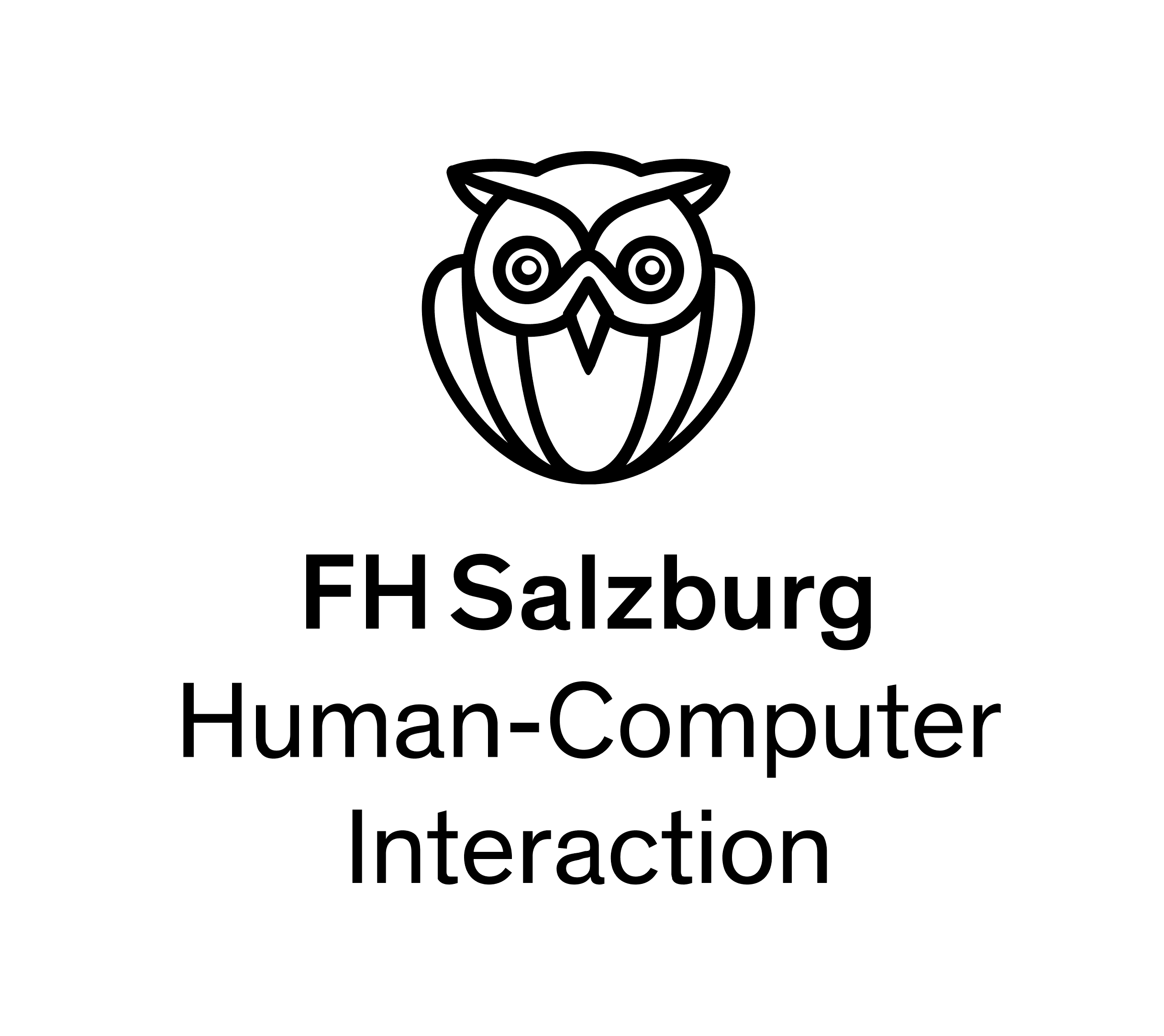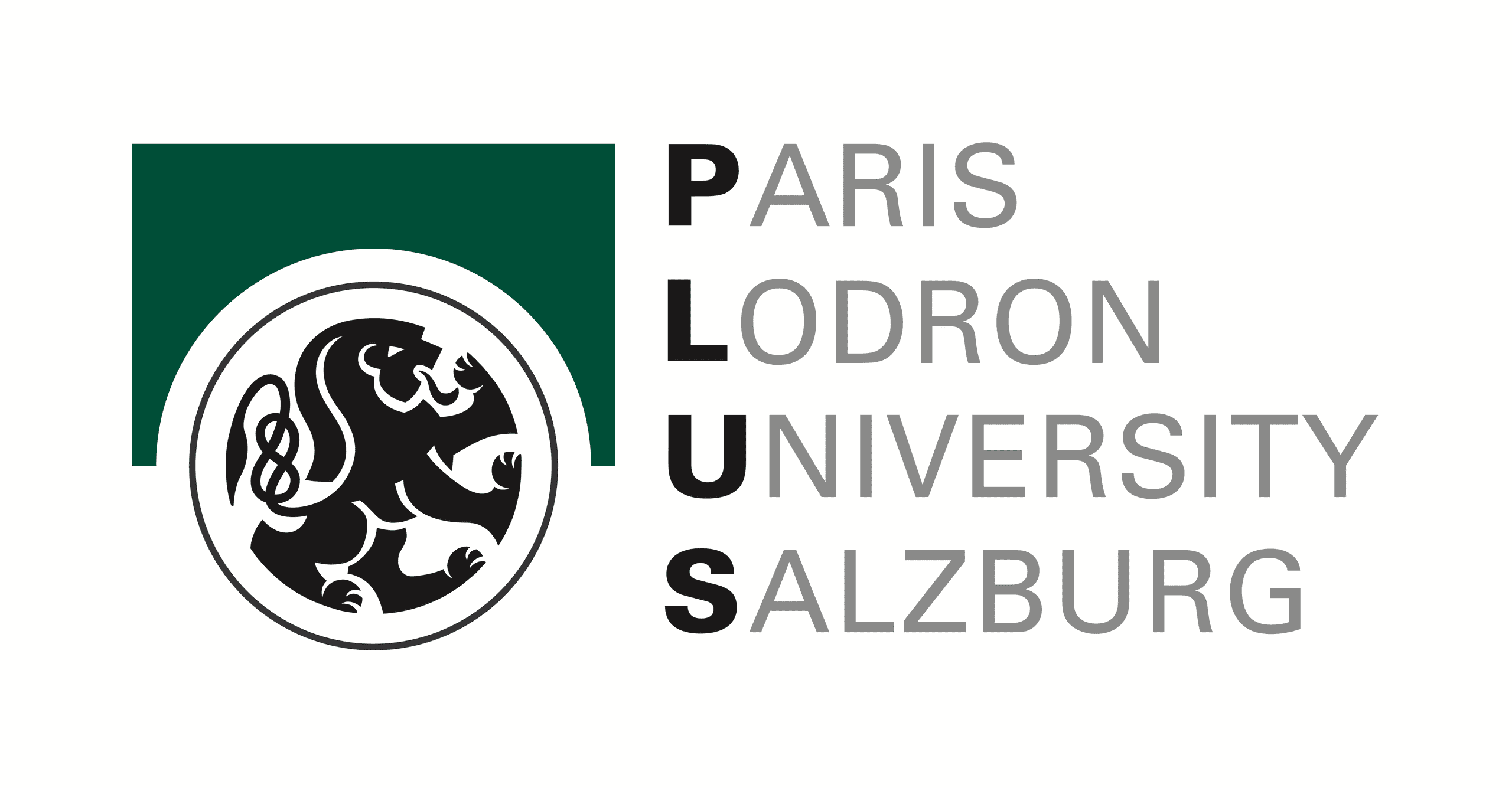HCI Students Conference
03. July 2023
10:00
FB Computerwissenschaften - Hörsaal T02
The Conference will take place on July 3rd, 2023 in T02.
The Proceedings of the Salzburg HCI Students Conference 2023 are presented here:

Riccardo Longo
This research investigates the role of voice-interactive artificial intelligence tools, particularly designed to foster creativity. Therefore, we are examining our self-build prototype known as the Creative AI Voice Assistant, or short CAVA. The effectiveness of CAVA in stimulating creativity was evaluated across five key dimensions using the Creativity Support Index. Preliminary findings suggest that CAVA shows substantial potential in enhancing exploration and enjoyment in the creative process, whilst also indicating potential areas for development in expressiveness and immersion. By focusing on the underexplored field of voice-interactive AI tools for creativity support, this study bridges a crucial research gap, providing valuable insights into their efficacy within creative processes.

Theresa Katharina Stürmer
This study investigates how participants of an online lecture perceive an AI contributor integrating humor, as well as its effect on their lecture experience and engagement. Furthermore, the relevance of the condition of interaction between lecturer and the contributor was examined. The study was done with a mixed method approach. It included semi-structured interviews followed by a quasi-experiment to test the integrating of an AI assistant named "Maia" incorporating humor in online lectures with a Wizard-of-Oz approach. Our findings suggest that participants of an online lecture see potential benefits in an AI contributor if certain implementation aspects are considered. However, the humor of the AI contributor needs improvements regarding format and content. The interaction of the lecturer with the AI contributor had some positive effects and a conversational and interactive integration of the AI contributor seems to be crucial. The study’s limitations include the lecture setting and Wizard-of-Oz approach, as well as the AI humor used and should be considered for future study.

Lukas Dommershausen
With the constantly evolving opportunities that Artificial Intelligence (AI) brings to the creative industry, the importance of adequately implementing it in appropriate user scenarios is also increasing. Therefore, a large part of the existing literature deals with the study of the effects that the use of AI has on the completion of creative tasks. This study joins this strand of literature by attempting to investigate a relationship between the degree of influence of AI and individual experiences, such as creativity support, creative self-efficacy, and the feeling of being responsible for the outcome. Our investigation included a mixed-method approach in which we collected quantitative and qualitative data within a workshop in which subjects (N = 18) had to solve creative tasks under different conditions of AI involvement. The results indicate that different levels of AI involvement did not significantly affect overall creativity support, but participants felt more immersed when generating their own ideas before utilizing AI. However, excessive AI engagement led to decreased feelings of responsibility, reduced creative self-efficacy, and a more passive approach, highlighting the need for a balanced integration of AI to maintain a sense of personal agency and foster positive efficacy expectations.

Marie Oppitz
Artificial Intelligence (AI) technology has already transformed various creative industries, and interior design is not an exception. From creating 3D models to visualizing designs, AI has been utilized in many ways by interior designers. However, the creative outcome of the project does not only rely on the creativity of the designer, but also on the effective collaboration between the designer and the client in the beginning of the project — at the briefing stage. In this research we aim to explore the potential of AI to enhance the collaboration and communication at the briefing stage of interior design projects, which can potentially open more room for creativity. We employed qualitative research methods and conducted two cycles or research: interviews and the workshop with both interior designers and clients. Our findings include the key challenges faced by both parties at the briefing stage and potential solutions, including AI-assisted tools which could facilitate creative collaboration. This paper also addresses potential limitations of utilizing AI, concerns of the interior designers and clients surrounding AI, and the prospects for future work.

Eva-Maria Strumegger
Text-to-image generators have transformed the creative landscape by converting text descriptions into unique visual representations. However, text as an input modality presents challenges for users and artificial intelligence (AI) models due to its vast possibilities and the need for precise instructions. Conveying emotions through text-to-image prompts is particularly challenging, and research that has addressed user needs and the usability of such systems has been limited. Thus, we explored which user interface (UI) components could be useful for generating emotional imagery for mood boards. A co-design workshop was held to identify aspects that are important for emotional imagery and to gather ideas on how UI components for text-to-image generators could incorporate these aspects. Based on the findings from this workshop, a clickable prototype for a structured search, named Emi, was developed and evaluated. Our evaluation shows that Emi’s individual UI components are very useful in facilitating the creation of emotional images, and Emi as a whole is user-friendly, balancing both functionality and aesthetics well.

Lucie Weber
Collaboration between AI agents and humans in everyday creative tasks is gradually becoming a routine. As a result, the interaction design between humans and AI agents in creative systems is playing an increasingly important role. Seeing a need for more effective and natural communication channels, this study addresses the question how implementing facial expression awareness in a co-creative AI chat agent influences the collaborative experience. To this end, we conduct a comparative user study with ten participants. In two separate ideation tasks, the participants explore the interaction with the text-based AI prototype, once with and once without facial expression awareness. We evaluate the collaborative experience based on the adjusted Creativity Support Index (CSI) and semi-structured interviews. Our results indicate an enhancement of the collaborative experience when interacting with a facial expression aware AI chat agent. Given our findings, we compiled insights for the design and implementation of facial expression aware AI agents.

Jose Maria III Santiago
The integration of AI in language learning is gaining popularity through Intelligent Computer-Assisted Language Learning (ICALL), facilitating personalized learning environments. However, existing ICALL solutions for Second Language Acquisition (SLA) suffer from limited effectiveness due to outdated AI practices. To address this, we propose the utilization of generative AI to overcome such limitations and create personalized learning experiences. This paper presents our initial prototype that employs various generative AI models to construct a virtual scene with a conversational agent for linguistic practice, guided by a set of design principles. Through a user-centered design process with SLA learners, we iteratively refine the prototype and produce design guidelines. We discuss the challenges of using the prototype as a standalone application for linguistic training and provide recommendations for integrating generative AI in SLA. Our paper aims to establish a foundation for generative AI approaches in SLA and offer design considerations for AI-based language learning tools.

Tobias Mocka
This paper seeks to explore the influence of AI voice alteration technology on actors during improvisational theatre performances, taking into account changes in performance, the impact on actors, and the potential enhancement of creativity. Furthermore, we provide a practical guide for implementing AI voice-changing systems in order to optimize the experience for improv actors. The study was conducted in collaboration with an improvisational theatre group based in Salzburg, Austria. Using qualitative methods such as observations and interviews, we performed a thematic analysis, which revealed four main themes: the negative effects of latency and study setup limitations, implications for future system design and implementation, the unique role of AI in improvisational theatre, and the potential of voice AI to expand creative possibilities. Our findings carry significant implications for the integration of AI technology in the creative industry. While the study highlights the potential of voice AI in improv, it also underscores the importance of addressing technical and setup issues to ensure effective utilization of the system in the future.


